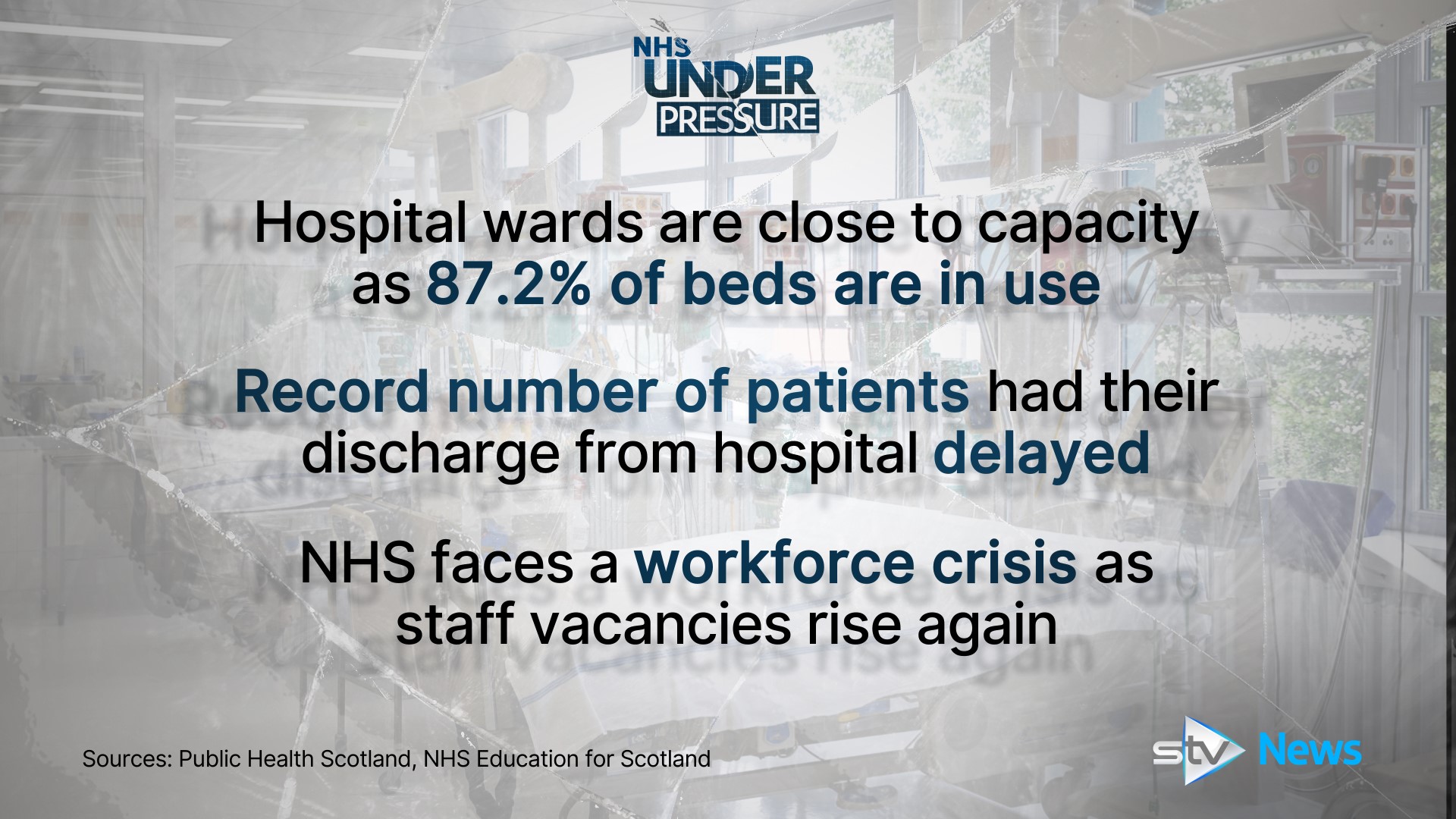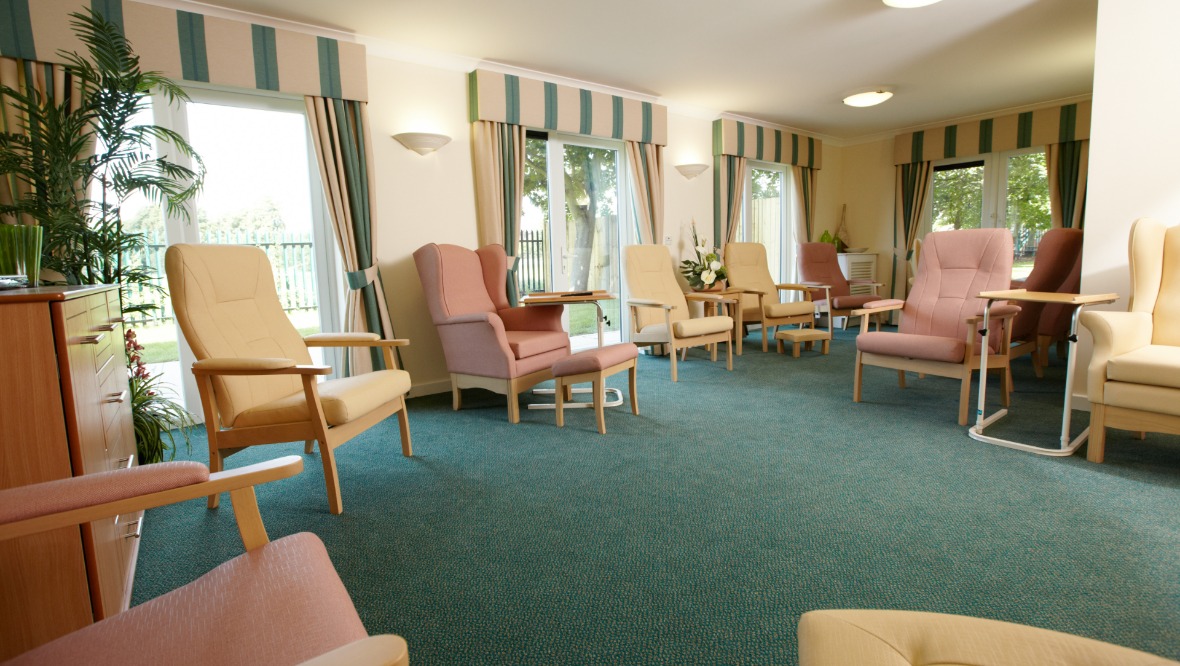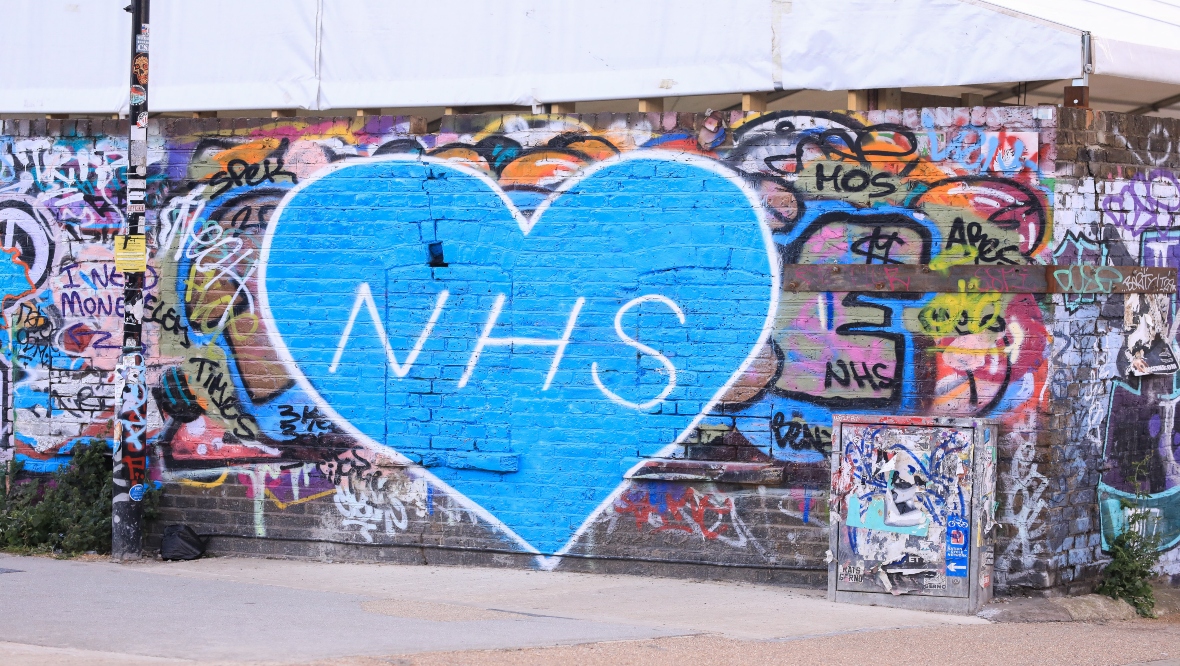As excellent reports by STV News this week point out, the NHS is under strain like never before.
As an expression of values that are almost hardwired into the national psyche, the concept of cradle-to-grave service provision, irrespective of income, is rightly cherished.
And yet here is the hard truth.
The overwhelming success of the NHS since 1948 has led it to a state of near collapse.
In a sense, it is now the victim of its own success.
 STV News
STV NewsAdvances in technology, new drugs and better procedures has led to greater longevity, which in turn has demanded more of the institution that has kept people alive for longer.
The consequence of the pandemic is the immediate issue that has crystallised the crisis.
That crisis is defined by delayed operations and procedures (sometimes for years), appallingly long waits for ambulances and at accident and emergency, bed blocking, waiting time targets deteriorating at an alarming rate and utter frustration in trying to access GP and NHS dental consultations when needed.
Indeed, NHS dentistry is all but dead for routine, non-urgent procedures.
Patients when phoning surgeries are told they can have an appointment so long as they will pay privately. I know this to be the case from personal experience.
The issue with dentistry is simple. The government does not pay practitioners enough to allow these self-employed businesses to break even on basic NHS treatment.
The issue has been festering for decades and it is utterly shameful that the Scottish Government has allowed this situation to stagnate to the point that unless you are on benefits or need an emergency procedure, you will pay for dental care.
Patients rightly ask, what has gone wrong? Dentists are genuinely furious that their embrace of NHS values is undermined by successive governments who seem to think they should not be properly rewarded.
Now, before supporters of the current Scottish Government start to cry foul, let me state unequivocally that every political party has questions to answer for the current crisis in which the health service finds itself.
The issues are similar, if not the same in the constituent parts of the UK where the Tories are responsible for the NHS in England, the SNP for the health service in Scotland and Labour for the NHS in Wales.
If you have been failed by the NHS or can’t get the operation you need, then the colour of the party in charge is irrelevant.
It is not contradictory to say that the party of government must own the problems on their watch whilst at the same time making the obvious point, kicking the Tories out of Westminster or the SNP out of Holyrood or Labour out of Wales won’t automatically change anything.
The problem is that the debate around the NHS is largely a con on the voters as it asks the wrong questions and falls prey to the easy and erroneous view that everything is solved with a change of government.
So, what would a grown-up debate on the NHS look like?
The first thing to ask is whether the ‘cradle to grave’ model of (mostly) free provision is sustainable with an ageing population?
Nowhere is this question more pertinent than in the debate about residential care.
Providers are already in crisis as government support is simply not enough.
 iStock
iStockWhilst the debate around the ‘demographic timebomb’ raged with no resolution, it exploded in the face of care home providers.
The consequence is a sector in crisis, struggling to survive and unable to reward as they would like their heroic staff who put their lives on the line every single day of the pandemic.
I will give a prediction.
The sticking plaster solutions in this sector will give way to a crude reality.
If the state cannot or will not adequately fund most of the costs for all pensioners, then those with assets (mostly property) will have to shoulder the burden in future.
The services of this sector will be needed with an ageing population, and I simply don’t see most of the costs being funded from general taxation.
Asset-rich pensioners have not earned their wealth in the traditional sense. They have benefitted from house price inflation and returns on stocks and shares. They have been fortunate to reap the benefits of having assets to sweat.
The cost of future residential care costs for the middle class will be smaller estates on death and I suspect that is the uncomfortable reality with which the political class don’t want to address, since doing so would be interpreted as an attack on senior citizens.
The wider debate is a con because it does not address the real questions.
NHS spending takes up an increasing proportion of national income, but the creaking service needs more. Politicians must establish what needs to be cut elsewhere or what taxes must increase to pay for this increased spending.
The holy grail of economic growth will provide the occasional buffer on finances when the economy is buoyant, but the basic questions revolve around tax levels and NHS spending as part of the wider national cake.
Politicians rarely address long-term spending needs since everything takes place within the short-term prism of the electoral cycle.
Spending continues to increase and yet outcomes remain patchy, suggesting that the NHS does not get the requisite bang for its buck.
Again, politicians who are ultimately accountable for the service seem unable to look at existing structures and ask if they need reforming?
NHS vested interests, from the surgeons and consultants to trade unions, understandably argue for what is best for them.
But discrete interests don’t always align with the interests of patients. Yet again, politicians are loathe to interfere.
The consequences of not properly debating the nature of cradle-to-grave provision and of what resource and structures are needed to deliver the founding principles is that the service bends its knee to the short-termism beloved of all political parties.
I hope I am wrong, but I sense that the ‘muddle through’ culture of today’s politicians will continue to dictate the prevailing attitudes to the NHS in the years to come.
Failure to establish a cross-party national consensus on funding, structures and scope of services will simply mean that the NHS will continue to generate more hot air in parliamentary chambers whilst many patients continue to struggle to get the care they need.
Follow STV News on WhatsApp
Scan the QR code on your mobile device for all the latest news from around the country


 iStock
iStock
























